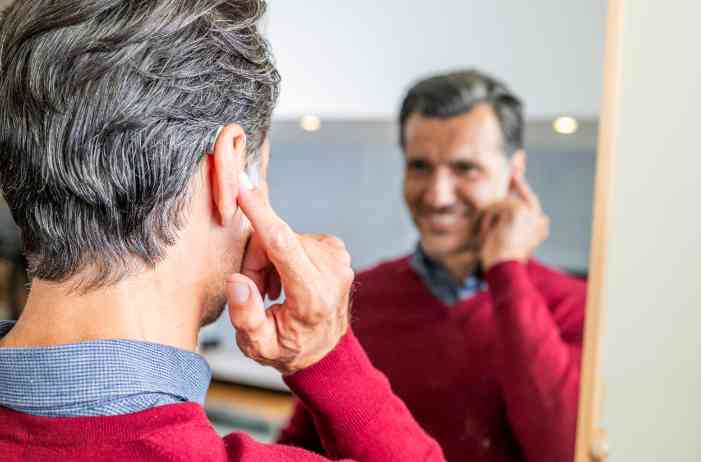
Don't throw away old hearing aid batteries
The zinc-air batteries found in most hearing aids use air as an energy source and come in a variety of different sizes. Be mindful when disposing of these, as well as other hearing aid batteries. Zinc-air batteries contain low levels of mercury, which should never be tossed in with household waste. Once these batteries are incinerated or released into a landfill, the mercury can cause environmental harm, affecting air and water quality.
How to recycle hearing aid batteries?
Bringing old hearing aid batteries to a location where they can be disposed of responsibly is a far better option, and some regions even have rules in place prohibiting improper battery disposal—be sure to check your local policies. Most municipalities have drop-off centers with recycling boxes for used batteries. Used batteries contain valuable metals that can be recycled, but they can also release harmful chemicals if not disposed of properly. The batteries will then be processed and the toxic metals removed and sold for re-use in various industries. Here’s how to handle them safely:
Why recycle hearing aid batteries?
Recycling hearing aid batteries is essential for both personal safety and environmental protection. Like all batteries, they are classed as special waste and should never be disposed of with household rubbish. Instead, they must be taken to designated collection points for proper recycling.
Expired or dead batteries can become inefficient or even hazardous if left unused, which is why safe disposal is so important. Recycling ensures that toxic substances are removed and treated correctly, preventing them from leaking into the environment. At the same time, the valuable metals inside the batteries can often be recovered and reused in other applications.
In short, recycling your hearing aid batteries isn’t just a safety precaution—it’s also the most environmentally responsible choice.
Dos and Don’ts for Hearing Aid Batteries
Battery performance and safety depend on how you use and store them. Follow these simple guidelines:
Where do you get rid of hearing aid batteries?
You should never throw hearing aid batteries into the household rubbish. The safest options are:
- Battery recycling collection points – Many supermarkets, pharmacies, and community centers in the US have drop-off bins for small batteries, including hearing aid batteries.
- Local recycling centers – Your council recycling site usually has a section specifically for batteries.
- Hearing care providers – Many hearing centers collect used batteries from their patients and send them to proper recycling facilities.
Recycling is important because hearing aid batteries contain metals and chemicals that can be harmful to the environment if they leak into landfill. By recycling, these materials are safely processed and, in many cases, reused.
Handling battery acid leaks
In rare cases, hearing aid batteries may leak acid, which can burn the skin. If this happens:
- Gently wipe the affected skin (hands, face, or feet) with a damp cloth.
- Remove any clothing or jewelry that has been in contact with the acid.
- Rinse the affected area under cool running water for at least 15 minutes.
- Cover with clean gauze or a cotton towel.
- If your skin becomes discolored or the burn worsens, seek medical advice immediately.
An alternative: rechargeable hearing aids
Rechargeable hearing aid options are an increasingly popular alternative to devices that require single-use zinc-air hearing aid batteries. Using lithium-ion technology, these hearing aids can be recharged over and over again, making them a reliable and environmentally-friendly option.
Rechargeable hearing aids are a good financial investment as well, eliminating the need to repurchase new batteries on a regular basis. Consider the average yearly costs of the four sizes of single-use batteries: size 10 may cost around $150 for a pair; size 312 around $80; size 13 around $50; and size 675 around $30 per year.
Next time you catch yourself tossing old hearing aid batteries into the trash at home, make a plan to recycle them locally instead. Better yet, talk to an expert about the advantages of rechargeable hearing aids and save yourself the trouble of ever having to buy batteries again.
The above is the interpretation of A Green Guide to Disposing of Hearing Aid Batteries provided by Chinese hearing aid supplier Shenrui Medical. Link https://www.srmcm.com/Blog/A_Green_Guide_to_Disposing_of_Hearing_Aid_Batteries.html of this article is welcome to share and forward. For more hearing aid related information, please visit Blog or take a look at our Hearing aids products















